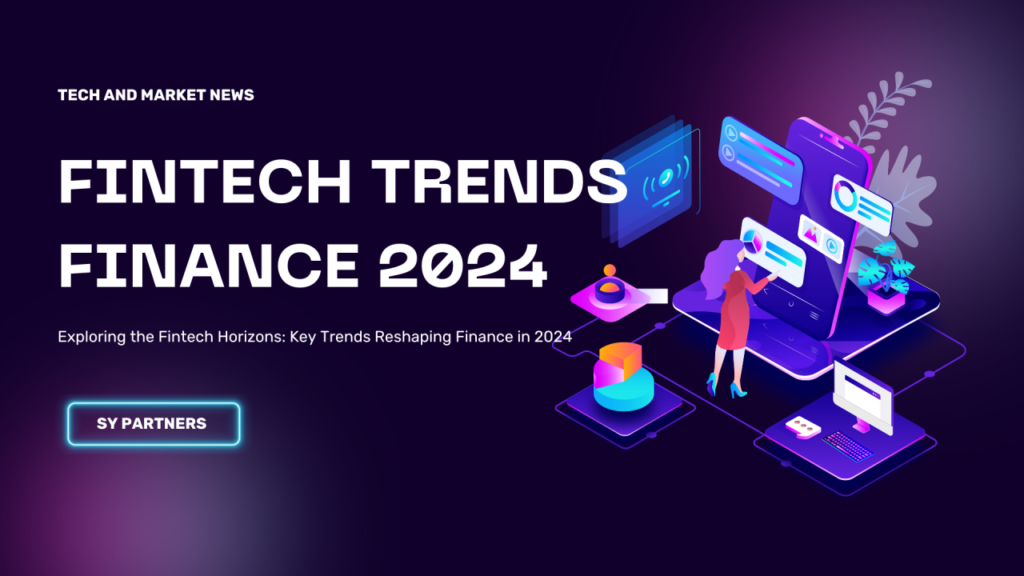
The financial technology (fintech) landscape is undergoing a massive transformation in 2024. Two key technologies, artificial intelligence (AI) and blockchain, are at the forefront of this change. They are revolutionizing everything from banking and payments to investments and fraud detection. This article explores the latest fintech innovations driven by AI and blockchain and how they are reshaping the finance industry.
1. The Role of AI in Fintech
AI is a game-changer in fintech. It’s making financial services faster, smarter, and more personalized. From automating processes to analyzing big data, AI is helping companies make better decisions and improve customer experiences. Here are some key areas where AI is making a big impact in 2024:
- Personalized Financial Services AI-powered algorithms analyze user data to offer tailored financial advice, investment recommendations, and personalized banking experiences. In 2024, banks and fintech companies use AI to understand customer behavior and provide solutions that fit individual needs.
- Fraud Detection and Prevention AI is becoming more effective at identifying fraudulent activities by analyzing patterns in transaction data. It can spot unusual behavior in real time, reducing the chances of fraud. With machine learning, these systems get smarter over time, making fraud detection more accurate.
- Robo-Advisors for Investment Management Robo-advisors use AI to create automated investment strategies for users. In 2024, these advisors are even more advanced, offering personalized investment plans based on risk tolerance, goals, and market trends. They make investing easier and more accessible to everyone.
2. Blockchain’s Impact on the Financial Industry
Blockchain technology is also making a huge impact on finance in 2024. It offers a secure and transparent way to handle transactions, reducing costs and increasing efficiency. Here’s how blockchain is transforming different areas of finance:
- Decentralized Finance (DeFi) DeFi uses blockchain to create financial services without the need for traditional banks. In 2024, DeFi platforms are offering loans, savings, and investments directly to users through smart contracts. This approach reduces fees, speeds up transactions, and gives people more control over their money.
- Cross-Border Payments Blockchain technology makes cross-border payments faster, cheaper, and more secure. In traditional banking, these transactions can take days and involve high fees. With blockchain, payments are processed in minutes with lower costs, making it easier for businesses to operate globally.
- Tokenization of Assets Tokenization is turning real-world assets like real estate, art, or stocks into digital tokens on a blockchain. In 2024, this trend is growing, making it easier to buy, sell, and trade assets. Tokenization also allows for fractional ownership, so more people can invest in high-value assets.
3. The Fusion of AI and Blockchain
AI and blockchain are powerful on their own, but together they are even more transformative. The combination of these technologies is unlocking new possibilities in fintech, including:
- Smart Contracts with AI AI can enhance the functionality of smart contracts by making them more adaptable and intelligent. In 2024, AI-powered smart contracts can automatically adjust terms based on real-time data and trigger actions when specific conditions are met. This innovation increases efficiency and reduces the need for human intervention.
- Enhanced Data Security Blockchain’s secure and transparent nature, combined with AI’s data analytics capabilities, offers a strong defense against cyber threats. In fintech, this means better protection for sensitive financial data and a lower risk of data breaches.
- Improved Credit Scoring Models Traditional credit scoring often misses critical data points that could indicate a person’s true creditworthiness. AI, in partnership with blockchain, is creating more accurate and fair credit scoring systems by analyzing a wider range of data, including transaction history and alternative financial behaviors.
4. Emerging Trends in Fintech for 2024
Several new trends are shaping the future of fintech, driven by AI and blockchain innovations:
- Central Bank Digital Currencies (CBDCs) More countries are exploring digital versions of their national currencies. These Central Bank Digital Currencies (CBDCs) are built on blockchain technology, offering faster and more secure transactions. In 2024, CBDCs are gaining traction as governments look for ways to modernize their financial systems.
- AI-Powered Financial Planning Tools AI is helping people manage their finances with more precision. In 2024, financial planning tools use AI to analyze spending patterns, suggest budget improvements, and offer investment advice. These tools make it easier for individuals to meet their financial goals.
- Integration of Fintech with Everyday Life Fintech solutions are becoming part of daily life in 2024. AI and blockchain technology are now integrated into everyday activities, like making payments through wearable devices, using voice assistants for banking, and accessing financial services through social media platforms.
5. Challenges and Ethical Considerations
Despite their potential, AI and blockchain in fintech come with challenges that need careful consideration:
- Data Privacy Issues AI relies on large amounts of data to function effectively. Ensuring this data is secure and used ethically is a major concern. Companies must be transparent about how they collect and use customer information while complying with data protection laws.
- Regulatory Uncertainty Blockchain technology, especially in DeFi and cryptocurrencies, faces uncertain regulations in many countries. Fintech companies need to navigate these regulations carefully to avoid legal complications and ensure compliance.
- Risk of AI Bias AI systems can unintentionally develop biases based on the data they are trained on. It’s essential for fintech companies to regularly check their AI algorithms to ensure they are fair and unbiased in their decision-making processes.
Conclusion
AI and blockchain are redefining the fintech landscape in 2024. They are making financial services more efficient, secure, and personalized. As these technologies continue to evolve, we can expect even more innovative solutions that will transform how we manage, invest, and interact with money. However, it’s crucial for the industry to address challenges around data privacy, regulation, and AI bias to ensure a fair and secure financial future.
The future of fintech is bright, and those who embrace AI and blockchain innovations will lead the charge in shaping the next era of finance.